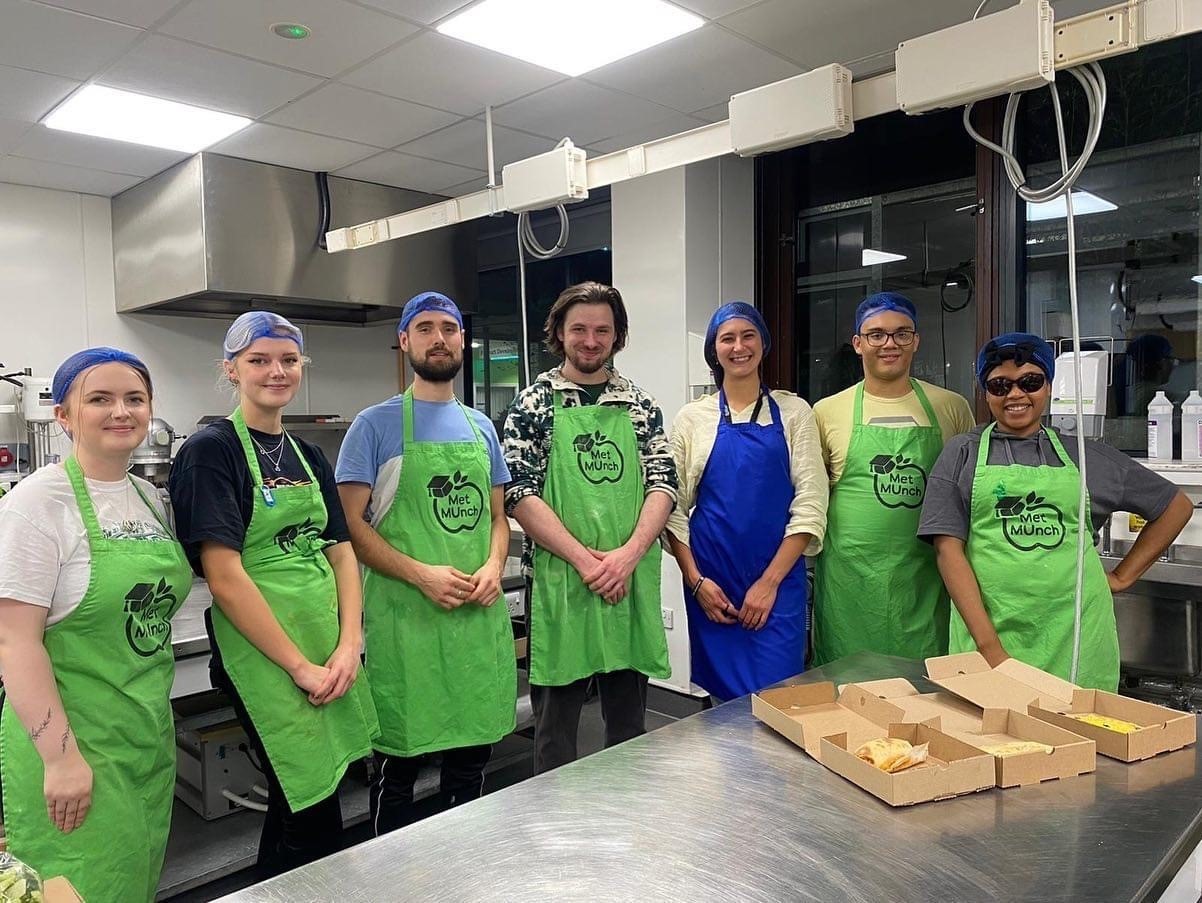
Responsible Consumption and Production
UN Sustainable Development Goal (12)
About this SDG
Manchester Business School was recently awarded Economic and Social Research Council funding for a three-year (2024-2027) project on circular society innovations (CSI) for place-based equitable, inclusive and environmentally sustainable living. The aim of the project is to explore the processes by which places can become more equitable, inclusive and environmentally sustainable by developing, implementing and scaling CSI.
A taskforce dedicated to reducing the environmental impacts of fashion and textile waste in the North West was formed in 2023 by Manchester Metropolitan University and the Greater Manchester Combined Authority (GMCA). This supports the Government’s plans to reduce the impacts of textile waste through the introduction of the Waste Prevention Programme and Textiles 2030, which aims to reduce the environmental footprint of the sector through science-based targets.
MetMUnch is a global award-winning, student-led social enterprise focusing on nutrition, well-being and sustainability. As part of the £5.2m EU project FoodWAVE, MetMUnch will teach young people the importance of climate-friendly food consumption and they will share their resources with 16 other European countries. Haleh Moravej, founder of MetMUnch and Senior Lecturer in Nutritional Sciences, said: “Food is at the heart of many of the world’s environmental, social and economic challenges. The issues – from soil health to public health – are complex and cannot be solved in isolation. As it stands, the way we produce and consume food is pushing the planet and its systems to the limit”.
In 2021, MetMUnch, was a finalist in the National Enterprise Educators’ Awards in the People’s Choice category. These awards, organised by Enterprise Educators UK, recognise excellence within enterprise and entrepreneurship education in UK higher and further education. The aim is to reward and celebrate those who have demonstrated an exceptional and inspirational commitment to supporting student and graduate entrepreneurship.

The University has a Sustainable Food Policy (2022) which provides a framework for our commitments to ensure that food and drink are produced, sourced, consumed and disposed of in ways that consider the protection of the environment, provide benefit for society and set high standards for animal welfare.
Manchester Met is part of the FoodChains 4 Europe consortium which focuses on innovation that contributes to the environmental sustainability of the food chain whilst contributing to social sustainability through increased access to high-quality food.
The project Can regional food systems feed the public plate? aims to understand the capability of farmers and other food producers to supply schools, hospitals and other public sector caterers through regional supply infrastructure. Working in partnership with the Soil Association, the project will assess the potential for public sector procurement to support food producers and suppliers that provide enhanced social, economic and environmental benefits to regions. Working directly with key policy stakeholders, the project aims to inform Covid-related economic recovery through the post-Brexit regulatory adjustment for public food procurement and the development of the forthcoming National Food Strategy.
Since 2021, the Fashion Institute has been working on an innovative project with footwear manufacturer Vivobarefoot. The project, which is the first of its kind in the UK, has involved the company working with University experts to transform every aspect of their supply chain including exploring the possibility of using 3D printing in the manufacturing of its footwear.
Researchers from the University have developed new filaments using recycled, post-consumer, single-use plastics (SUP) wastes, including materials commonly found in plastic drink bottles and coffee cup lids. As a result, thousands of tonnes of waste – which would otherwise have ended up in landfill – will now have the opportunity to be made into new, higher-value products. The development of the new filament marks a milestone in the TRANSFORM-CE project, funded by Interreg North West Europe.
The TRANSFORM-CE Interreg project works with businesses across Europe to turn single-use plastic waste back into raw plastic material (known as ‘feedstock’) for intrusion extrusion moulding and additive manufacturing (3D printing). TRANSFORM-CE aims to drive the uptake of recycled single-use plastic materials using 3D printing and moulding the plastics to turn these valuable resources into new products that can be returned to the process a number of times. As part of the project, small and medium-sized enterprises (SMEs) will be able to trial the filaments helping them to experience the benefits that 3D printing technology can bring to their business, whilst incorporating recycled post-consumer plastic waste for the first time
The aim of the Sharepair Project is to reduce the amount of waste from electrical and electronic goods. We are developing a network of community-based “repair shops” where individuals can access 3D printers and specifications for parts to repair their machines and devices instead of replacing them with a new product. Waste from electrical and electronic goods is one of the fastest-growing waste streams in the European Union, growing at 3-5% a year.
15 years of collaborative research with Bobst Manchester has underpinned major improvements in the manufacturing and processing of aluminium oxide high barrier, recyclable food packaging films. The company is now the global leader in supplying manufacturing and conversion systems.
Working with partners across Europe, Manchester Met is leading research to develop methods that turn waste concrete into feedstock for 3D-printed concrete designs such as urban, memorial or garden furniture. Experts say the reuse of waste RFA could save threatened natural resources and divert tonnes of waste from landfill, but currently no market exists for the use of these materials.
